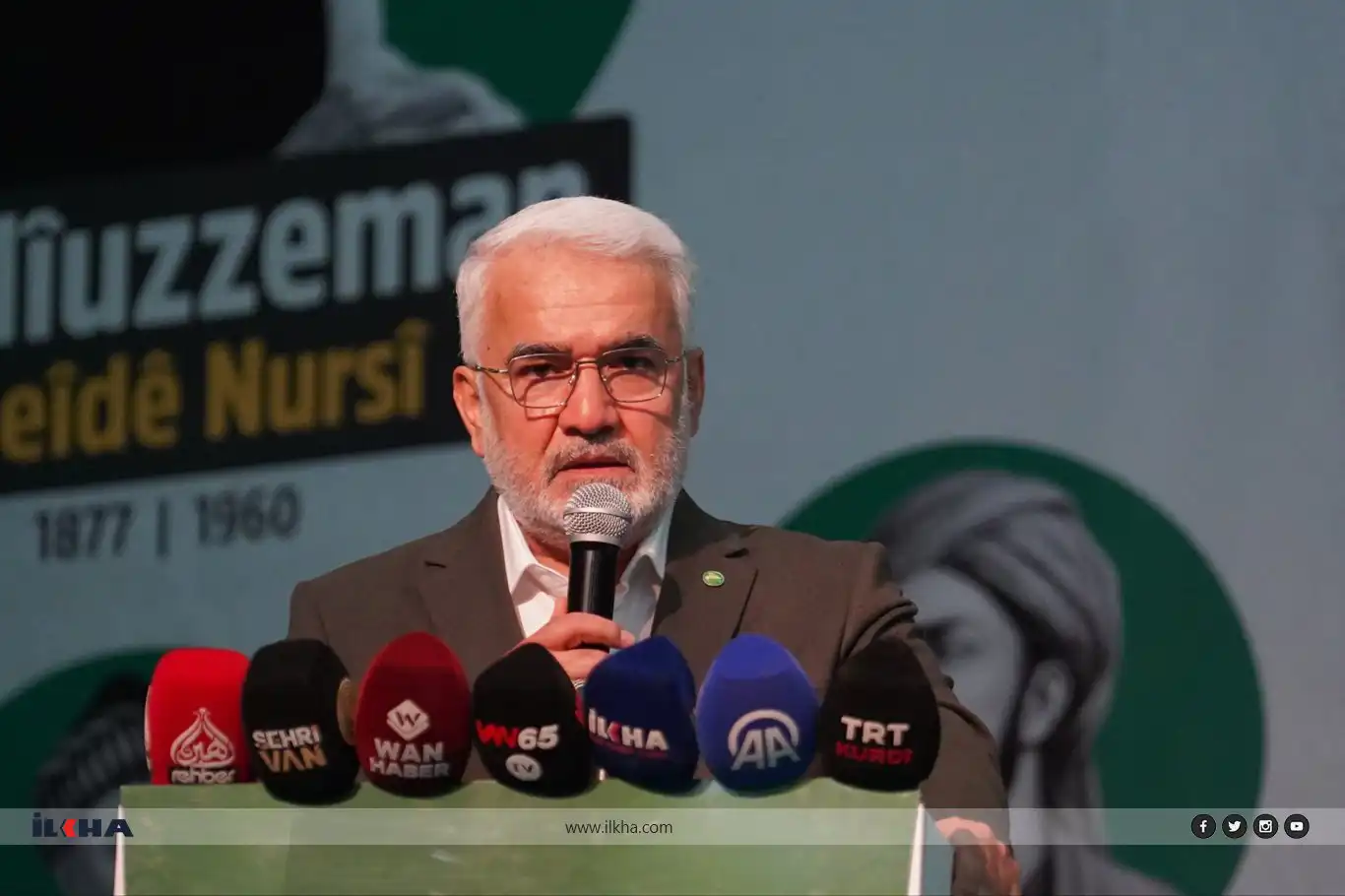HÜDA PAR leader calls for “humanitarian and just” solution to Kurdish issue


HÜDA PAR Chairman Zekeriya Yapıcıoğlu called for a sincere, justice-based approach to resolving the Kurdish issue, saying that the problem has too often been reduced to a matter of public order rather than recognized as a long-standing question of rights and identity.
Speaking at the “Workshop on a Humanitarian Solution to the Kurdish Issue,” organized by his party’s Human Rights and Legal Affairs Department in Van, Yapıcıoğlu urged the state, political parties, and society to show genuine will and patience in seeking a lasting and fair solution.
“For nearly two centuries, we have had a Kurdish issue that existed long before the problem of violence began,” Yapıcıoğlu said. “Unfortunately, state authorities have often treated it merely as a problem of violence and security — one that could be solved by military means. But it is not just a matter of law and order. It is, above all, a question of rights and justice.”
Yapıcıoğlu expressed cautious optimism about the current dialogue, noting that official statements acknowledging past errors give reason for hope.
“It is now better understood that this problem cannot be solved through weapons or repression,” he said. “But if we forget the mistakes of the past, we risk repeating them. We must analyze them correctly and draw the right lessons so that we can build a sound foundation for peace.”
He emphasized that his party is fully engaged in the work of Parliament’s “National Solidarity, Brotherhood and Democracy Commission,” which he called a positive and important step toward national reconciliation.
“I have personally attended all 15 meetings of the commission,” he said. “More than 130 representatives from civil society, academia, and politics have been heard. Even the creation of such a commission under the roof of Parliament is meaningful.”
Yapıcıoğlu warned that allowing internal issues to remain unresolved creates instability and invites external meddling.
“When problems remain unresolved, they make our geography vulnerable to imperialist intervention,” he said. “We have already paid the price in the form of unrest, lost generations, and economic decline. This issue concerns all of us, and everyone must take responsibility for a solution.”
He also traced the roots of the Kurdish question back to the 19th century Tanzimat era, arguing that the centralization and Westernization policies initiated then — and later reinforced by the early Republic’s policies of denial — deepened the problem.
While acknowledging that a 200-year-old problem cannot be solved quickly, Yapıcıoğlu said that sincerity, strong will, and patience are essential.
“Such a complex issue cannot be solved overnight, but neither is it impossible,” he said. “I am hopeful and will never lose that hope. Hopelessness has no place in our book. If the will for a solution is strong and sincere, no obstacle will be too great.”
Commenting on the controversy surrounding Parliament Speaker Numan Kurtulmuş’s recent Kurdish-language remarks in Diyarbakır, Yapıcıoğlu criticized the intolerance toward even symbolic use of Kurdish in official settings.
“Some people said, ‘We are not against Kurdish, but why was this said in an official setting?’” he noted. “What does that mean? That Kurdish can be spoken in homes or markets but not in public life? Even under Stalin, Kurds preserved their language at home.
As I once said: The Kurds want only what God has granted them — nothing more, nothing less. If a Kurd asks for more than that, it is wrong. But if you deny what God has given, that is oppression.”
Yapıcıoğlu underscored that the resolution of the Kurdish issue must rest on justice — both as a divine command and a human virtue.
“Allah commands us to be just,” he reminded. “If we treat our brothers as we wish to be treated, and avoid doing to others what we dislike for ourselves, we can solve this issue. Justice is not just an Islamic principle — it is the foundation of any humane solution.”
Expressing optimism, Yapıcıoğlu said he believes the current environment offers a better chance for progress than in previous efforts.
“This time, I truly believe we are closer to a solution,” he said. “If resolving the issue step by step is possible, then that is the wise and practical path. We must not fall into the trap of ‘all or nothing.’”
He concluded his speech by reaffirming his faith that a fair and peaceful resolution can be achieved: “This is an issue of rights and justice. We believe a just solution is possible, and we will continue to work for it. This time, we will succeed, God willing. We must succeed — and we pray to witness it with our own eyes.” (ILKHA)
LEGAL WARNING: All rights of the published news, photos and videos are reserved by İlke Haber Ajansı Basın Yayın San. Trade A.Ş. Under no circumstances can all or part of the news, photos and videos be used without a written contract or subscription.
A 4.6-magnitude earthquake struck the Tuşba district of Van province in eastern Türkiye on Sunday, the Disaster and Emergency Management Authority (AFAD) announced.
Hungarian Prime Minister Viktor Orbán will pay an official visit to Türkiye on Friday, following an invitation extended by President Recep Tayyip Erdoğan, the Turkish Presidency announced.
As the winter season deepens, the Orphans Foundation has intensified its annual efforts to support orphaned children in need, launching a compassionate dual-phase initiative that provides both essential supplies and personal choice.
Turkish President Recep Tayyip Erdogan held a telephone conversation with his Venezuelan counterpart, President Nicolás Maduro, on Friday, discussing bilateral relations and regional developments.